I’m a wannabe trout bum. I feel absolutely no shame about admitting this. I’ve pored over John Gierach’s writings before bed, read casting books on my morning commute, or just perused fly fishing magazines while laying around on a Sunday afternoon. I’ve often thought to myself how great it would be to throw caution to the wind, put my belongings in storage and head out west in pursuit of the various species of Salmonidae that have come to occupy an ever-increasing amount of space in my head.
I’m also someone who never wins games of chance. If you gave out nine winning raffle tickets to a group of ten people, I’d definitely be the guy going home empty handed. Not that I’m complaining, I’ve been blessed in many ways, but sweepstakes, raffles and their ilk have never been particularly kind to me. So imagine my surprise when I received an email from Todd Tanner informing me that I had been selected to attend the School of Trout on a scholarship from Trout Unlimited, a weeklong fishing experience on the world-famous Henry’s Fork in Idaho.
I’d applied months earlier for the Hatch Magazine Scholarship (which ultimately ended up getting awarded to a fellow student at this year’s school named Kelly) but had given it little thought as I’d figured the odds were infinitesimally small that I would be selected to pack up and head out for a week of instruction, fishing, more food than I could imagine, and the chance to learn from some of the greatest anglers of the century.
A couple disclaimers before I proceed any further: First, I’m not an absolute beginner. I’ve been fly fishing for just over six years. I’m a guide school graduate, a certified casting instructor, the president of my local TU chapter and would consider myself firmly in the “intermediate” stage of my evolution as an angler. Second, I’m not nearly as good of an angler or caster as I thought I was before I went to Idaho. The Henry’s Fork has a funny way of humbling those with an oversized ego, and it certainly helped bring me down a peg or two. But so does John Juracek, a soft-spoken instructor with the ability to surgically diagnosis every flaw in your casting stroke, all while lending words of encouragement and with a kindly smile on his face.
It’s impossible to cram everything I learned in the week into an article short enough to keep your attention. But here are a few lessons that really stuck out.

Fly-Fishing is a Journey, not a Destination
More Like This
I came into the trip with certain ideas about casting, fly selection, and rigging, to name a few. Be open to other ways of thinking. Whether it was Tom Rosenbauer sharing his thoughts on presenting flies directly behind boulders (he’s not a fan), Jeff Currier demonstrating how to fish his double streamer rig, or Kirk Deeter on something as simultaneously simple yet complicated as fly box organization, each instructor helped open my mind to different ways of fishing than the ones I’ve habituated myself to.
Check your ego at the door
I’m not going to lie. I came into the School of Trout ready to show off my fancy casting skills, honed over hours preparing for my CI exam. John Juracek watched me for, at most, three casts and immediately diagnosed that I have a tendency to “slide” my hand towards the target on the forward cast (in casting instructor parlance, it’s often referred to as “hand translation”). Let’s just say that I didn’t initially appreciate the feedback. But after the session ended, I thought about it. I had come all the way across the country to be there. Refusing to take constructive criticism would have been a waste of not only John’s time, but my own. I started tinkering with my cast throughout the week and by the end, I was a more fundamentally sound caster, with one less flaw in my casting stroke. John seemed pleased.
Enjoy the destination trips, but appreciate where you live
Every single time I’ve headed out west to go fishing, I’ve come away awed at the beauty of the scenery, the clarity of the water, the abundance and size of the fish. But interestingly enough, I come back from these trips more appreciative of the waters I have at home. Washington, DC isn’t exactly the fly-fishing mecca of the Universe. But if you’re willing to get a little creative, you can find some pretty memorable fishing. The trout on “The Ranch” section of the Henry’s Fork are notoriously selective and hard to present a fly to. I have almost never fished as hard as I did there. Holding in a crouched position for hours, moving so slowly that I left no ripples on the glassy water, I stalked a single 20+ inch fish for almost two hours as the day ended. One last cast, fly perfectly positioned. A large head subtly rising in the fading light. Set the hook and ... nothing. The other place I’ve had a similar experience? Casting to grass carp in the back eddies of the Potomac River just outside of downtown Washington DC. Point being, enjoy the trip of a lifetime, but don’t turn your nose up at the opportunities just outside your door.

Don’t take anything for granted
When not running School of Trout, Todd Tanner is the brains and brawn behind Conservation Hawks. When not working my desk job, I’m wearing several different hats as a volunteer for Trout Unlimited. Hilary Hutcheson, School of Trout instructor, guide extraordinaire and all around fishy lady devotes a significant portion of her free time to Backcountry Hunters & Anglers. Each of us arrived at conservation from a different angle, but ultimately for similar reasons. No trout stream is guaranteed. The Henry’s Fork is an incredible river but it’s not a world class fishery by accident. It’s the destination that it is because people from the local community, as well as across the world, fought for its protection. Speak up for wild fish, and often.
When I look back at my evolution as an angler, School of Trout will stand out as a defining experience. The opportunity to pepper some of the greatest anglers in the world with questions is the kind of chance that doesn’t come to many, and certainly doesn’t come often. Many thanks to Todd Tanner and School of Trout, Kirk Deeter and Trout Unlimited, John Juracek, Tom Rosenbauer, Hilary Hutcheson, Tim Romano, the rest of the School of Trout instructors, as well as my fellow students for an incredible experience.

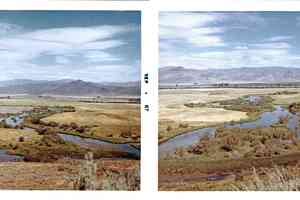
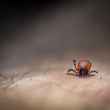
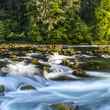
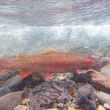
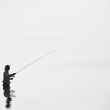
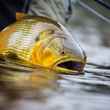
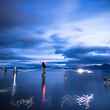
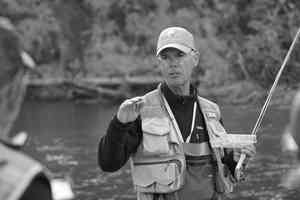
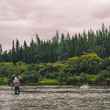

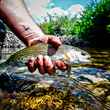
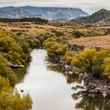
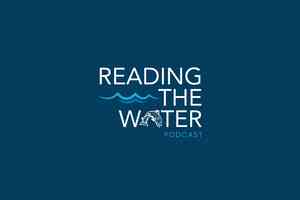
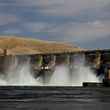
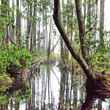
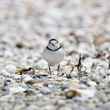
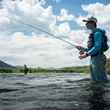
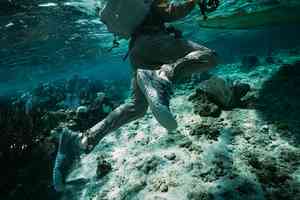
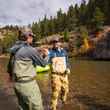
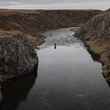
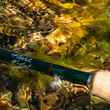

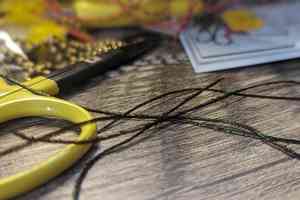
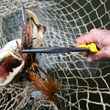
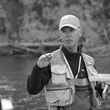
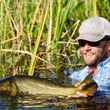
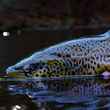
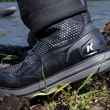
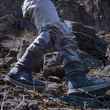
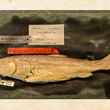
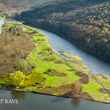
Comments